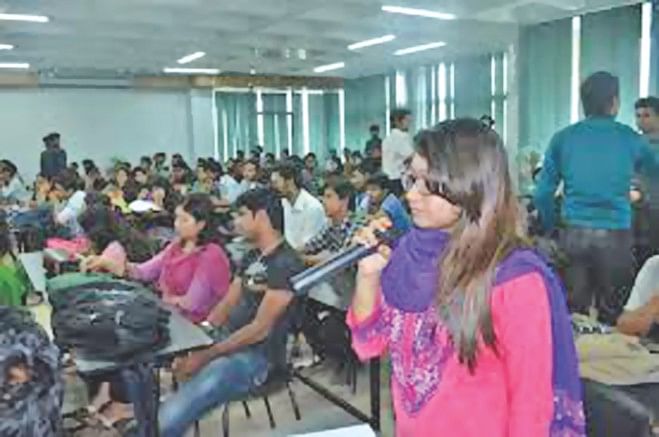Our take on private universities

The growth of private universities in the country in terms of both number and quality has often been the subject of discussion amongst the literati. The concept of allowing universities in the private sector was floated by some luminaries of the educational arena in the '90s. For these visionaries it was undoubtedly a journey through uncharted territory, which was fraught with many adversities.
Obtaining permission from the government and fulfilling a plethora of terms and conditions was the first hurdle to cross. It took strong arguments and sensible deliberations to convince the government, the University Grants Commission, to be in agreement. The fact that thousands of students who could not get admission in Dhaka University, BUET, DMCH etc., went abroad to pursue higher education in private institutes, became the strongest point of argument. They could convince the government that these students would stay home to study in private universities and thereby save our foreign currency. And thus the first university in the private sector was established nearly 20 years ago on the basis of the Private University Act 1992.
But getting permission was not everything. Finding suitable buildings, teachers, books, teaching materials, staff, etc., turned out to be equally exhausting. The next difficult and most important part was convincing guardians to send their boys and girls to study there. But the credibility of the initiators, investors, teachers and good PR work took care of that. Within the next five years a few more standard private universities came up with the noble mission of imparting quality education.
Today, there are nearly 60 private universities on the list of the UGC. Of them about twenty are operating with credibility and the rest are somehow managing to survive. The better performing ones have their own infrastructure, highly qualified faculty, rich library, a non-interfering Board and plenty of curricular and extra-curricular activities.
On the other hand, many private universities have been identified by the UGC as poor performing ones, hobbled by internal feuds and allegations of delving in anti-academic activities. The Trustee Boards of some of these universities are divided into two or more factions. Even after repeated warnings from the UGC, things have not improved there. They continue to belittle the dream of the pioneers – to have an alternate channel of higher education in the country that would be of international standard and non-profit in nature. Many of the new investors came in with the motive of making money and using the institute to gain social and political mileage out of them.
It needs to be mentioned here that the better performing universities have already earned a name for themselves and now are concentrating on how to face the challenges of the times ahead. The challenges are coming from the high performing private universities in the country and those that are established in countries across South East Asia. The challenge ahead is to take the standard of our universities many levels up to meet global standards and be able to draw students from the countries surrounding Bangladesh. The challenge is to invest more in infrastructure development, faculty and student research, and prepare students to be global citizens. Without these goals a private university will only remain as a certificate selling agency.
For this supplement we have talked to some representatives of private universities in order to have an insight into the workings of these educational institutes and learn why they are better than the others.

 For all latest news, follow The Daily Star's Google News channel.
For all latest news, follow The Daily Star's Google News channel. 



Comments